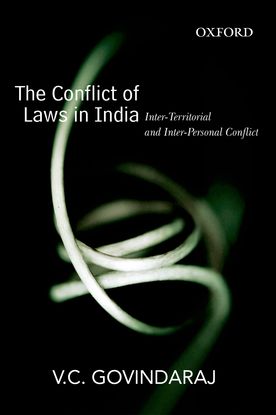
Conflict of laws, or private international law, is an increasingly important subject of study due to increasing movement and relocation of large number of people from one jurisdiction to another for personal and professional reasons. Despite the existence of rules and principles, there is a general uncertainty on issues such as commercial transactions, family law relationship, personal law subjects, and laws relating to property. This book is a detailed and up-to-date study of conflict of laws and focuses on its three main areas? the law of obligations, law of property, and law of persons.
The book provides fresh perspectives on the subject and analyses its significance in the dynamic contemporary world. The work not only lucidly examines the inter-territorial conflicts but also lays a special emphasis on inter-personal disputes in the Indian context. The work also evaluates the role of various international instruments and conventions including The Hague Convention on private international law designed to resolve international conflicts. The book also discusses critical issues such as habitual residence, domicile, and obligations for shaping foreign contracts and torts.